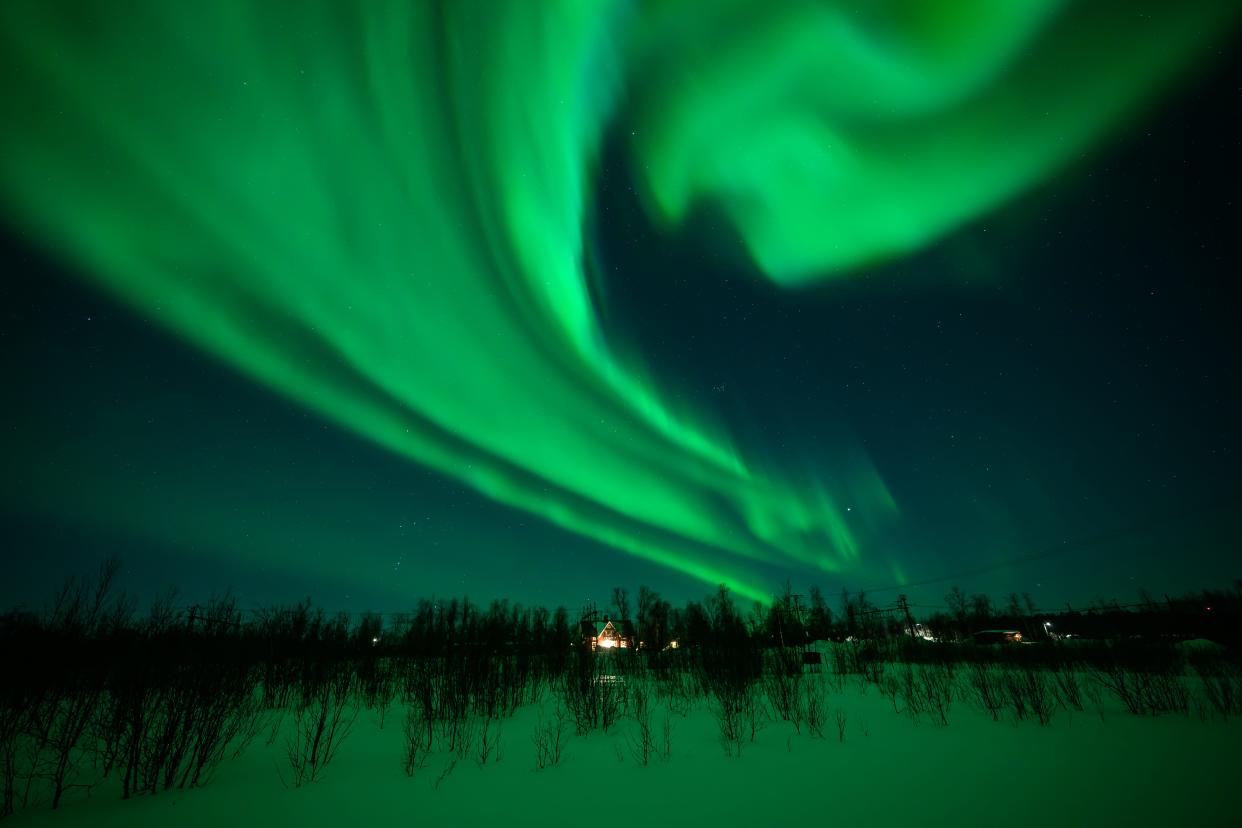The northern lights might be visible this weekend in Colorado. Here's when to look

NOAA's Space Weather Prediction Center issued a severe geomagnetic storm watch for May 11 for the first time since 2005. This very rare event means northern lights might be visible over the northern part of the country.
According to the agency, severe storms like the one this weekend have the potential to be seen “as far south as Alabama and Northern California.”
Here’s what we know so far:
When will the aurora be visible?
According to the Space Weather Prediction Center, the coronal mass ejections (solar material eruptions) that cause geomagnetic storms will arrive by late Friday or early Saturday, although the events might persist through Sunday.
Typically, the best time to see them is “usually within an hour or two of midnight (between 10 PM and 2 AM local time).”
Will I be able to see them from Colorado?
A map from the agency shows the northeast portion of the state is within the viewline for Friday night.
Mike Bettwy, operations chief at the National Weather Service, said there’s moderate chances, around 40% to 60%, to see the aurora borealis but “the terrestrial weather has to cooperate as well.”
“We're already seeing the geomagnetic storm kick in. So based on how it's progressing … we're also expecting it to be fairly long duration. I think that there's a decent shot, both tonight and tomorrow night,” Bettwy said.
As for the terrestrial weather, NWS forecaster Caitlyn Mensch said Friday night is the best chance Northern Colorado has with regard to cloud cover.
By midnight, the sky will clear from around 40% cloud cover to around 20%. On Saturday, some scattered showers and thunderstorms will bring cloudy conditions in the evening.
Solar maximum, what it means for skywatchers
According Bettwy, the sun goes through cycles of high and low activity that last 11 years on average, with a peak midway through.
“So between now and probably the end of 2025 is when we'll see the most potential for geomagnetic storming and associated events,” Bettwy said.
Geomagnetic storms, besides causing the aurora displays, can also disrupt communications, satellites and the electric power grid.
Bettwy said forecasting space weather and northern lights can be a challenge compared to forecasting the weather on our planet.
“We don't have nearly as much data or modeling as they do with terrestrial weather. And that really puts us at a disadvantage. I like to say that space weather is probably where terrestrial weather was in about 1965,” he said.
Last-minute tip
Bettwy also recommends using your phone’s camera:
“Even if you can't see the lights with your naked eye, you might try to take a few pictures with your iPhone because the acuity of your iPhone is greater than our eyes. So if you take a few pictures of the sky and then look at the photo later, you might actually see some northern lights in there.”
You can also check NOAA’s 30-minute forecast here.
This article originally appeared on Fort Collins Coloradoan: Colorado might see northern lights from rare geomagnetic storm tonight

